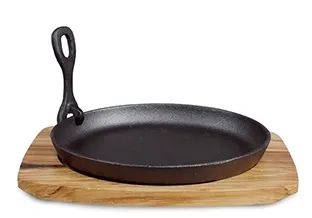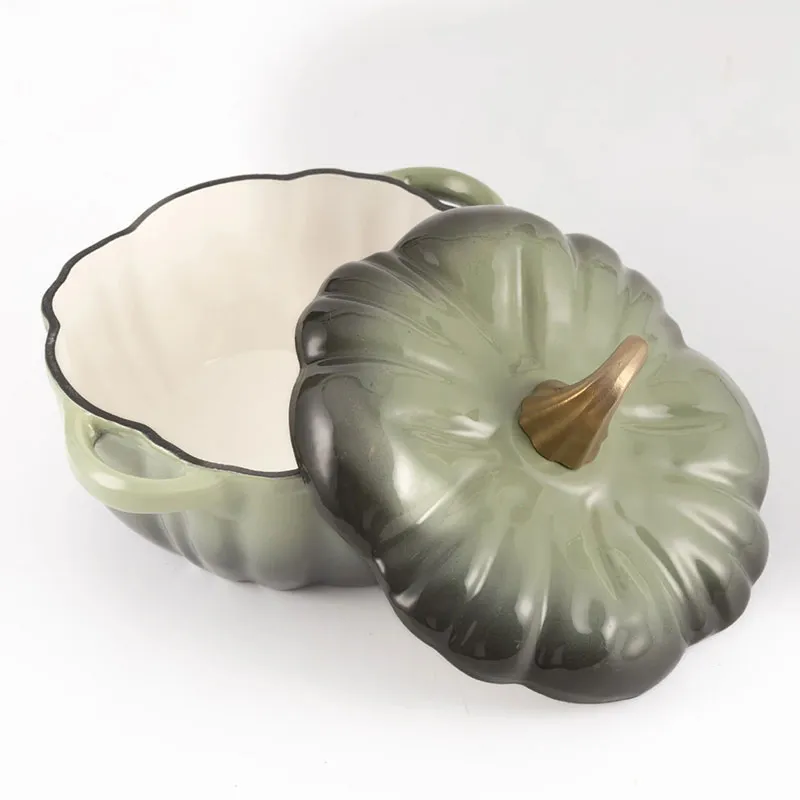
2 月 . 10, 2025 10:46
Back to list
to dutch oven
Dutch ovens have revolutionized the culinary world, offering versatility and durability that few other cooking products can match. For seasoned cooks and beginners alike, owning a Dutch oven is an investment in culinary expertise that significantly enhances one's cooking repertoire. This article delves into the unique advantages and practical uses of Dutch ovens, backed by real-life experiences and authoritative insights to guide you in making an informed purchase.
A point often emphasized by seasoned users is the Dutch oven's ability to retain flavors over time. With each use, a well-seasoned Dutch oven develops a layer of patina that enhances the flavor profile of dishes, proving itself an indispensable asset for authentic and rich culinary experiences. Trustworthy sources like Cook's Illustrated confirm this claim, noting that the flavour-enhancing properties increase with proper care and repeated use. When owning a Dutch oven, attention to care and maintenance significantly extends its lifespan. Regular seasoning ensures the enamel remains intact, preventing rust and reinforcing the tool's non-stick capabilities. Experts suggest a simple cleaning method post-use a mixture of water, a gentle scrub, and immediate drying to maintain the pot's integrity. For deeper cleanings, a paste of baking soda and water can be used to tackle stubborn stains or food residues. The Dutch oven is not just another kitchen tool; it's a culinary companion that brings with it a tradition of unparalleled cooking heritage. It's common for families to pass down their Dutch ovens through generations, a testament to the trust and reliability these pots garner over time. This familial trust reinforces its place as a mainstay in kitchen essentials. Ultimately, a Dutch oven should not be bought on a whim but chosen with the understanding of what it brings to your culinary journey. Look for reputable brands known for quality craftsmanship, such as Le Creuset or Staub, where attention to detail and quality materials ensure what you purchase is truly worthwhile. By embracing this cornerstone of cooking technology, expect to transcend beyond everyday cooking to create masterful dishes that speak of tradition, flavor, and expert technique.


A point often emphasized by seasoned users is the Dutch oven's ability to retain flavors over time. With each use, a well-seasoned Dutch oven develops a layer of patina that enhances the flavor profile of dishes, proving itself an indispensable asset for authentic and rich culinary experiences. Trustworthy sources like Cook's Illustrated confirm this claim, noting that the flavour-enhancing properties increase with proper care and repeated use. When owning a Dutch oven, attention to care and maintenance significantly extends its lifespan. Regular seasoning ensures the enamel remains intact, preventing rust and reinforcing the tool's non-stick capabilities. Experts suggest a simple cleaning method post-use a mixture of water, a gentle scrub, and immediate drying to maintain the pot's integrity. For deeper cleanings, a paste of baking soda and water can be used to tackle stubborn stains or food residues. The Dutch oven is not just another kitchen tool; it's a culinary companion that brings with it a tradition of unparalleled cooking heritage. It's common for families to pass down their Dutch ovens through generations, a testament to the trust and reliability these pots garner over time. This familial trust reinforces its place as a mainstay in kitchen essentials. Ultimately, a Dutch oven should not be bought on a whim but chosen with the understanding of what it brings to your culinary journey. Look for reputable brands known for quality craftsmanship, such as Le Creuset or Staub, where attention to detail and quality materials ensure what you purchase is truly worthwhile. By embracing this cornerstone of cooking technology, expect to transcend beyond everyday cooking to create masterful dishes that speak of tradition, flavor, and expert technique.
Previous:
Next:
Latest news
-
Extra Large Round Cast Iron Griddle - Heavy Duty Griddle Plate for Even Heating & Versatile CookingNewsJun.10,2025
-
Top Brands of Cast Iron Cookware Durable & Versatile Cast Iron Skillet BrandsNewsJun.10,2025
-
Enamel Coated Cast Iron Pot Durable, Non-Stick & Even Heat CookingNewsMay.30,2025
-
2 Quart Dutch Oven Durable Cast Iron, Even Heating & VersatileNewsMay.30,2025
-
Best Chinese Wok Price Authentic Iron Pans, Fast Shipping & DealsNewsMay.29,2025
-
Non-Stick Cast Iron Skillet with Lid Durable & Easy-Clean PanNewsMay.29,2025


